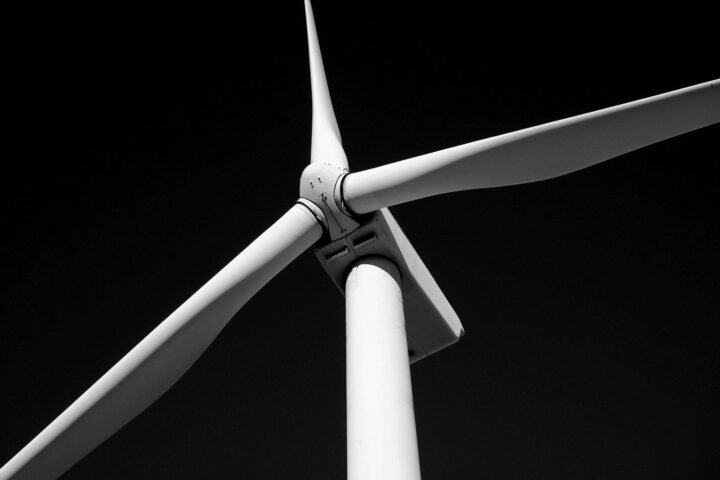Each week we share news and social media updates related to our “The 10 Ways to Save Our Planet” list.
1. Act Now
In the face of escalating climate concerns, individuals hold the power to make a difference. High school students across the US have launched the Green New Deal for Schools campaign. The goal of the initiative is to build support for passing federal legislation that would require school to better prepare themselves fro the effects of climate change, and include climate education in their curriculum.
Plum Village promotes mindfulness and sustainable living, offering online courses to foster ecological awareness.
USA Today urges against climate doomerism. Progress has been made, and made more significant by climate activists. Climate denial and climate doomerism both lead to the same thing, inaction, which the world can not afford.
2. Build Political Will
As COP28 approaches, the leaders of several countries are calling for the conference to agree on a fossil fuel phaseout. Such a phaseout was one of the main themes of UN Secretary General Antonio Guterres’ Climate Ambition Summit, which was something of a prelude to COP28.
Former British Prime Minister Gordon Brown has suggested that Petrostates should be required to use some of the immense profits generated by their nationally owned oil companies to provide support to less wealthy countries. State oil companies generated $4 trillion in profit in 2022. Even just 3% of that would, $25 billion, would provide a huge amount of support to countries in the global south, helping to reduce poverty and emissions, and bring some relief from the effects of climate change.
In a similar vein, The Union of Concerned Scientists argues that countries need to legally recognize the right to a stable climate as a fundamental human right that is essential for our well-being, safety, and the prosperity of future generations.
3. Eliminate Fossil Fuels
Emmanuel Macron has announced an ecological plan to reduce France’s greenhouse gas emissions to 55% of 1990 levels by 2030. The plan is center around eliminating the use of coal for electricity production by 2027, and reducing the overall dependency on fossil fuels for energy generation from the current 60% to 40% by 2030.
Editor: Do note that the 55% reduction is relative to 1990, rather than the usual, less favorable comparison point of 2005.
Lego recently announced that their plan to switch away from oil based plastic had been cancelled due to the realization that the high energy use of the manufacturing process of the new plastic Lego had planned to use would result in more carbon emissions that the currently used plastic. In lieu of a currently available alternative plastic, Lego has been increasingly relying on recycling no longer used bricks in new sets to reduce the amount of plastic they manufacture.
Several European insurance giants, including AIG, Lloyd’s of London, Zurich and Swiss Re, have been underwriting US coal mines. The mines insured by these companies account for 31% of US coal production. This is despite these insurance firms all having greenhouse gas reduction ledges. Lloyd’s of London in particular has pledged to reach carbon neutrality by 2030.
A story about the recent Biden Administration oil leases, politics, and the Inflation Reduction Act, in three parts:
Biden Said He Would Stop Drilling. Then Reality Hit.
(nytimes.com)
Tens of thousands of climate protesters who filled Midtown Manhattan last week directed their anger at President Biden, who has done more to combat climate change than any of his predecessors.
But in their view, he has failed in one important way: Mr. Biden has not stopped oil and gas drilling on public lands and in federal waters, as he pledged as a candidate in 2020.
Biden administration approves more offshore drilling in bid to expand wind energy
(cnn.com)
The Inflation Reduction Act required the Interior Department to propose a certain number of oil and gas leases in federal waters in exchange for the ability to propose clean offshore wind energy projects. Three was the lowest number that would allow it to move forward with offshore wind lease sales around the country, the department said, given the requirements of the law.
Tying clean wind energy to fossil fuel drilling was a key demand of Sen. Joe Manchin, the West Virginia Democrat who wrote much of the bill.
The Inflation Reduction Act: Topline Oil and Gas Reforms
(pogo.org)
The IRA contains a provision that inextricably links renewable energy development to fossil fuel interests. For instance, the bill provides that the government must offer at least two million acres of federal land for onshore oil and gas leasing before any proposed wind or solar lease is issued. Additionally, in order for solar and wind projects to proceed, the government must hold a quarterly lease sale that results in an oil and gas lease. This means the IRA could open up approximately 20 million acres of public land for oil and gas leasing over the period of a decade. While some of this usage will generate an increased return in royalties for taxpayers, these provisions do constitute a handout to the oil and gas industry, which has historically taken every opportunity to deny taxpayers their fair share.
4. Speed up renewable energy
Two Shell employees sent an open letter to the CEO of the company, Wael Sawan, expressing deep concern about the recently announced direction of the company. In June Wael Sawan told investors that Shell would be scaling back its investments in renewable energy production. The letter was posted on an internal Shell web, and received 80,000 views and 1,000 likes from other employees.
5. Shift towards sustainable transportation
UK Prime Minister Rishi Sunak’s recently pushed the country’s ICE ban from 2030 to 2035. Several automakers have expressed annoyance at the decision. Ford in particular condemned the decision both for the lack of consistency and ambition. The transition to EVs will require enormous changes in infrastructure and incentives, neither of which can happen quickly without the help, or at least insistence, of the UK government.
In the US, Yale Climate Connections has been researching the CO2 emissions reductions of EVs in various states, and the news is good: EVs have lower emissions that gas cars in every US state. Even states like West Virginia that get their electricity from highly polluting sources like coal. The emissions reductions range from 34% in West Virginia, to 94% in Vermont, with Washington state coming in second at 90%.
However,
Among a few problems that frequently heavy EVs do not improve, rubber pollution from tires is significantly greater for EVs than equivalent ICE cars. The high mass and high torque exhibited by electric vehicles causes greater amounts of of tire wear, about 25%. As tires wear, tiny rubber particulates fall of them, which then leech into the environment. Though small in comparison to the consequences of the tailpipe emissions of gas vehicles, tire rubber is a problem to which no solution, even a distant one, currently exists.
6. Adopt planet-friendly agricultural practices
The Best & Worst Toilet Paper, Paper Towel, & Facial Tissue Brands
(cleantechnica.com)
Between 1996 and 2015, loggers clearcut 28 million acres of woodland, an area roughly the size of Ohio. And the United States is the largest driver of this forest loss. In 2022, it accounted for 65% of all of Canada’s pulp and paper exports, which are then used by some of the biggest household brands for everything from paper towels to toilet paper.
7. Eat a more climate friendly diet
8. Create sustainable cities and buildings
9. Protect and restore our environment
In-depth Q&A: Can ‘carbon offsets’ help to tackle climate change?
(carbonbrief.org)
To help spread understanding of carbon offsets and carbon capture, and whether or not they are effective, Carbon Brief has written this extraordinarily thorough report, which aims to answer common questions about carbon offsets and carbon capture. The report covers everything from ecological consequences, cost-benefit, technological feasibility, and the greenwashing that all to often accompanies claim of net zero emissions.
10. Ensure global warming stays below dangerous limits
Yet another study has concluded that the Gulf Stream is weakening, this time with a certainty of more that 99%. The Gulf Stream is important because it regulates the temperate of Europe and the Eastern Coast of North America, and influences weather and climate around the world. As the Gulf Stream weakens further, it will likely cause changes in large scale weather systems that will be difficult to predict, or adapt to.
DeBriefed 29 September 2023: Focus on carbon offsets; UK expands oil and gas; IEA’s path to 1.5C unpacked
(carbonbrief.org)
Carbon Brief publishes their own weekly climate news update. Among many other stories, this week’s covers a report from the IEA detailing what the world must to to avoid 1.5C.
Link of the week
From Social Media
About Us
We are a weekly Substack newsletter focusing on:
Progress in the fight against climate change,
Opportunities for individuals to make a difference.
Please follow, subscribe & share
Follow our WeCanFixClimateChange list on Twitter.
Read the full post at Substack - WCFCC.






